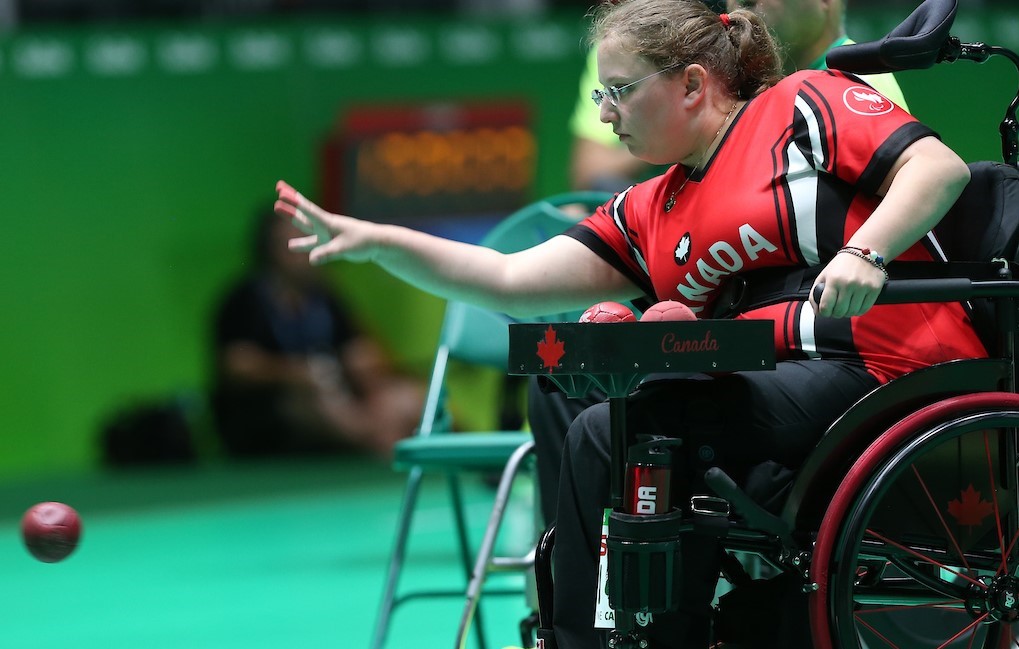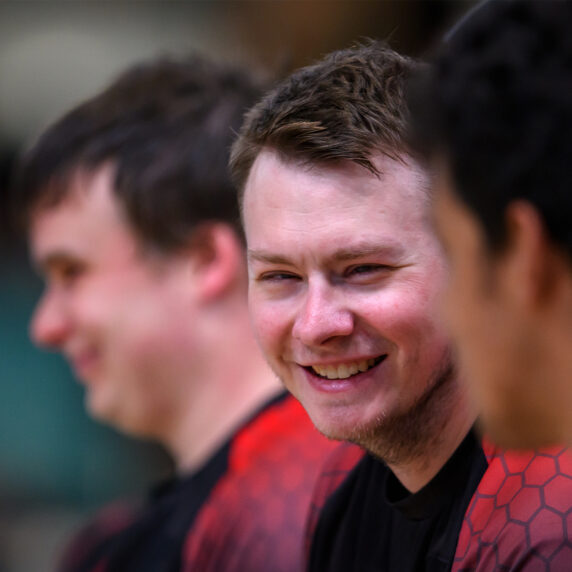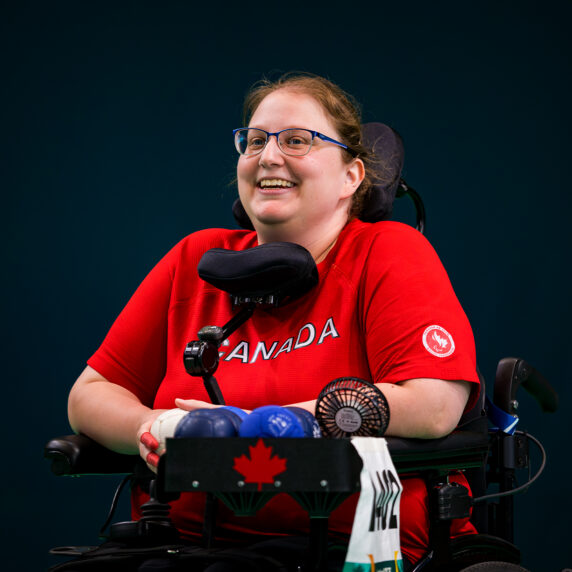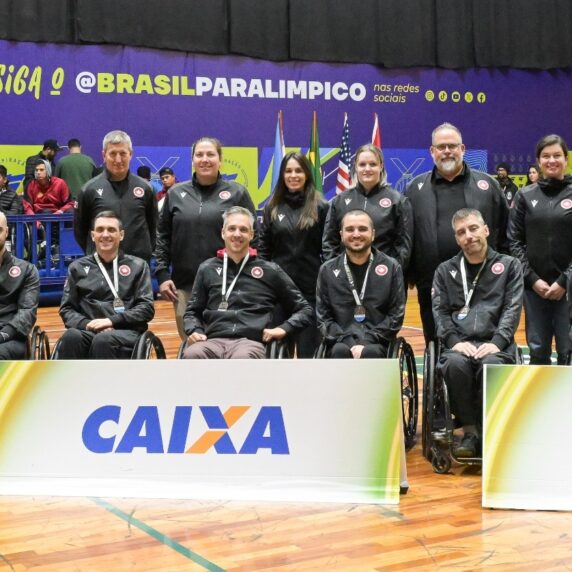Alison Levine’s ball point precision puts her in boccia’s elite
She is ranked third in the world

TORONTO – Expect to hear and read a lot about Alison Levine over the next year or so leading up to the 2020 Paralympic Games.
The 29-year-old from Montreal is one of Canada’s top medal contenders for both the Tokyo Games and the upcoming Lima 2019 Parapan American Games in the sport of boccia. Boccia is a sport similar to lawn bowls originally designed for players with cerebral palsy. The sport now includes athletes with impairments that affect motor skills.
Since her fifth-place finish in singles at the 2016 Paralympic Games in Rio, Levine has continued to improve in the sport, which primarily combines focus, precision and strategy.
Last season she climbed another notch with a fourth-place finish at the world championships in Liverpool, England. Then less than a year later, she won her first international singles gold at the World Open stop in Montreal.
These results are worth valuable international ranking points which have pretty much sealed Levine’s spot for Tokyo. She is now ranked third in the world.
‘’I was going for the medal at world championships for sure,’’ she said. ‘’I had medalled earlier at a World Open in Montreal. It is definitely within my range to be at the top at world championships and Paralympic Games.
‘’It would have been nice to come home with a medal but the amount of ranking points I was able to rack up there and the confidence I was able to get at such a high level of competition was invaluable.’’
Levine is affected by idiopathic muscular dystrophy for which she first exhibited noticeable symptoms of a neuromuscular disorder around age 12. Like many high-performance athletes in various sports, self management is an important factor in her success.
‘’I am definitely going to be working on is how to control my energy levels and how to conserve energy throughout those competitions,’’ she said in her preparations for Lima and Tokyo. ‘’So, when it comes to those ever-important quarterfinal and semifinal games I’m still at my peak.’’
Levine, who initially played wheelchair basketball and wheelchair rugby, was recruited by her current pairs partner Marco Dispaltro. At the 2015 Parapan American Games in Toronto, Dispaltro was Canada’s flag bearer at the Opening Ceremony.
‘’I don’t want to go to Tokyo without my teammates,’’ said Levine, who will lead a team of seven boccia athletes at the Lima 2019 Parapan Am Games next week. ‘’We therefore have to medal at almost every event we go to so we can get those ranking points to get one of those spots. We need to work really hard so that we all can go.’’
Boccia is now played in over 50 countries and the athletes are getting better and better as the sport gets increased exposure with every passing Games. Levine not only needs to keep up with the emerging talent but the ever-changing technology in the sport.
‘’If you play boccia recreationally all you need are a set of balls and anywhere that’s big enough to throw whether it’s an airport or conference room,’’ she said.
‘’At the higher level we have specialized sets of balls for each player. I have a special sports chair that’s tailored for me and a whole good set of strapping systems to really hold me into place and we’ve worked with bio-mechanics to make sure we’re in the most optimal seated position to get the most power and stability form the throwing.’’
It appears Levine will be fine for the foreseeable future.



"*" indicates required fields
"*" indicates required fields